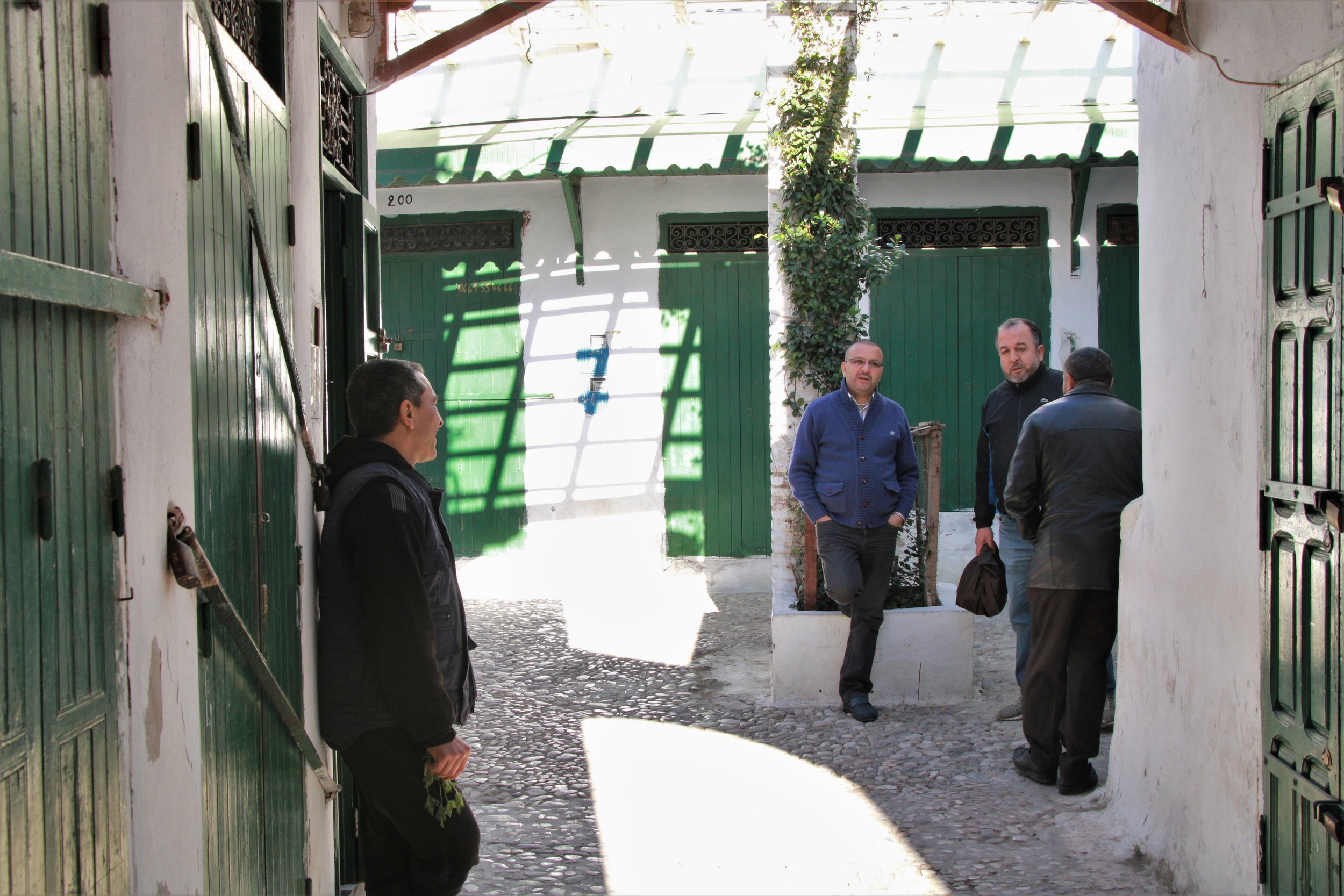To Morocco. At last I have arrived in the country of Choukri; the country of Bowles; that most famous blend of Islamic and Andalusian which has captured the imagination of writers, poets, expats, film makers, and musicians for centuries. It was here indeed I intended to go in the morning of 2020, when but for chance I met the woman who would become my wife in lands far to the south. Now at last I am here, and the themes upon which so many correspondents have based their admiration of this foreign yet nearby country and its people, repeat themselves in my short but intense experience. The cuisine; among the best in the world, and served unpretentiously in heaps. The people, talkative, yearning for the companionship which every moment could bring if they merely had someone to talk to. The souks and the medina; the paradox of beauty intermingled with poverty that makes them forever free from the tourist trap effect.
This is not the 1930s or 1950s. Today a man can’t write about the beauty of a souk; the world has heard of it before. Social media and mass tourism incubated a yearning and faculty for exploring Morocco without endangering or even challenging oneself, and one of the world’s great merchant cultures made it happen. Today, the traveler raised on Bowles, Hemmingway, Thubron, and others, is forced to burrow down deeper like a greedy dwarf or a nervous mole, to pull out the next set of hidden gems. What will the old-fashioned Odyssey-like travel book detail now which will draw in the masses fifty years in the future? It is partially for that purpose which I have come.
PICTURED: A living medina: Casablanca.
At night in the medina in Casablanca, I met Hakim, who talked only because he wanted to, or perhaps because he wanted to sell me hash. We stood in the square and talked as much about what we thought as what we were seeing. Getting lost, there were children and young men, all eager to have their photo taken on their half crumbling, have manicured ant’s nest they called a hometown. The walnut-wood doors of the merchant stalls were all closed, and a new cast of characters had come out to relax or run errands. Women walked home, boys played football with any remotely-spherical object available. Several locals wanted me to stop and pass the time. At some point, getting totally disoriented among the souks, a young woman, whose child I had just photographed, offered to hold the white-man’s hand and lead him out of the souk’s dark interior, a sight which, to my great joy and satisfaction, drove all the locals to howl with laughter.
PICTURED: A stale medina, Tangier.
In Tangier, the city of the great part of Mohamed Choukri’s suffering, I was passed around from grifter to grifter, enjoying their scripts and talking about films set in the neighborhood until they were so bored of attempting to crack open my attention and my wallet, that they retired for the night. I took tea in a chief café, and once again I could not be left to my journal and pen, as a Moroccan to my left, perhaps fearing the great gulf of silence enveloping him as he drank his tea alone, took the time to inform me of my old-fashioned charm. Sitting there, watching people, and writing in my leather-bound booklet of travel stories, he perhaps found a glimpse of Old Morocco, just as I was enjoying it there with my tea, looking upon the night market. Between my Italian and his Spanish, we split the difference of communication inability, and talked long into the night about whatever it was that caught our fancy. One of the grifters sees I have not gone home. He feels betrayed. He lashes out.
In Tetouan, my friend Anouar tells me a great many things of Morocco past and future. This city, known as the White Dove, was founded by an Islamic pirate queen, and the last woman of any Islamic tradition to hold the title of queen when she married the Sultan of Morocco centuries ago. The souks within the medina are a UNESCO World Heritage Site, but with every gorgeous doorway into the buildings which facilitated its designation blocked with a merchant’s stall, the city has reclaimed its honor from the prowling tourist. When the medina becomes sterile with tourism, such as within the Kasbah atop Tangier, one finds that it is not so much that, when thousands of people begin to build a unique form of living architecture all through mutual, yet independent pursuit, such a place has no beauty if all that spontaneity which created it is removed. When the souk is quiet, and the doors open to boutique hotels and soap makers, or when every lick of paint is maintained against time and tide, the medina ceases to breathe. It is dead.
Yet these details, pleasure, and curiosities are well-known and well-documented. I have come for a farther away country in which the traveler is still a rarity. It remains to be seen if I can find such a place, but I will try my hardest. We who read these authors dream of Morocco as it once was: virgin to the vast bulk of western eyes, but such days cannot be reclaimed, and can only be replicated if one is brave enough and is willing to follow the path beyond where the boot tracks end.






